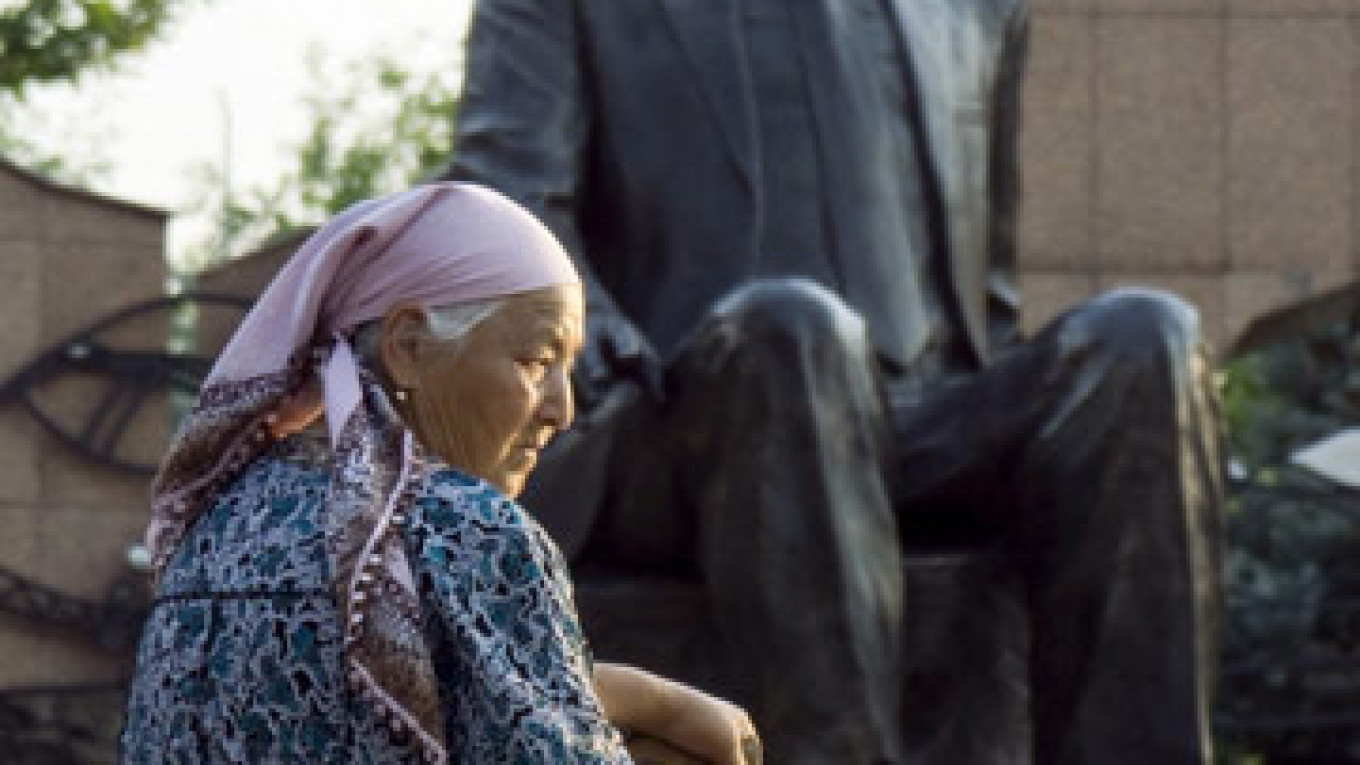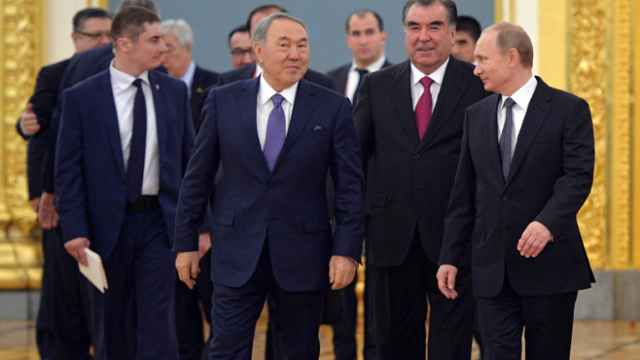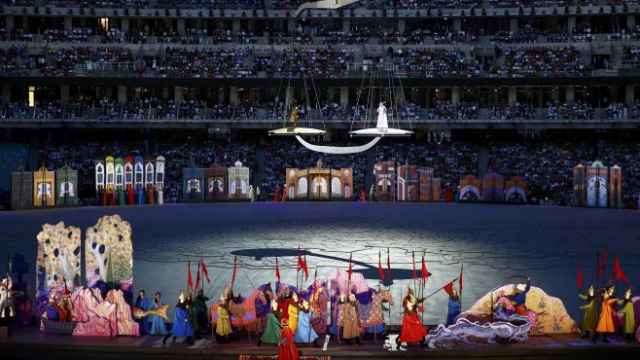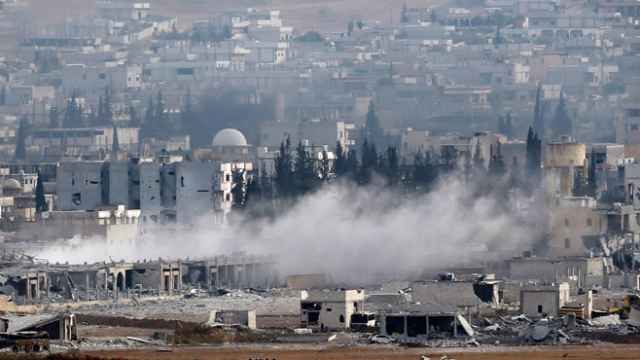Kazakhstan's PR machine wants us to know something. The country stands as an island of stability in a frothing sea of chaos. Islamist insurgencies rack its southern reaches, while Russia and China bully and blunder to the north and the east. Kazakhstan, meanwhile, chugs ahead, providing freedoms for both citizens and visitors, untainted by the surrounding bedlam.
Kazakhstan's officials and lobbyists have suckered Western policymakers and academics alike, convincing journalists that the country's "democracy" contains merit and that Kazakhstan's religious tolerance stands as a beacon for the Islamic world.
In reality, Kazakhstan continues to stand as one of the pre-eminent post-Soviet dictatorships. Political opposition in Kazakhstan is stifled, jailed and assassinated.
Kazakhstan remains a nation where a three-decade autocrat can swing 98 percent in an election, while political opponents rot in jail. It's not as if the country sees much room to protest the near-unanimous tally President Nursultan Nazarbayev received in the recent election. Freedom of assembly remains nearly nonexistent in Kazakhstan.
Even the freedom of religion, which the Astana authorities so eagerly play up for foreign observers, is a farce. While Kazakhstan hosts a "Congress of World Religions," and multiconfessional Kazakhstan may look a bit more appealing than its neighbors, the country remains one of only 33 nations cited by the United States Commission on International Religious Freedom monitored for "serious religious freedom violations."
And then there's media. Dominated by state-sponsored, state-friendly outlets, media freedom in Kazakhstan is an oxymoron.
Last week, the tattered remnants of Kazakhstan's remaining independent press took another blow. A judge in Almaty found Nakanune.kz, one of the few media voices bucking the state line, guilty of libel. Citing the outlet's corruption investigations into Almaty's construction industry, the court found that the outlet has caused undue harm to the industry's financial backers.
But the court didn't stop there. In addition to the verdict, the court levied a $107,000 fine against the defendant, Guzyal Baydalinova.
The country enjoyed some semblance of independent, if relatively constrained, media through the first two decades of Nazarbayev's rule, but everything changed following the 2011 Zhanaozen massacre, in which government forces gunned down over a dozen unarmed protesters.
Rather than drawing lessons from what may have caused the initial protests, and much like other post-Soviet autocracies, the authorities promptly blamed nefarious outside forces.
As such, in the four years since the massacre, Kazakhstan's independent media scene has shrunk from a stable, if small, coterie to one on life support. Outlet upon outlet, from newspapers to television, immediately disappeared, with authorities citing connections to foreign bogeymen. The likelihood any of these outlets returning remains close to nil.
Indeed, Nakanune.kz's situation follows directly on the heels of this year's closure of Adam Bol, another independent outlet castigated by authorities for sharing information not vetted by Astana.
Instead of simply taking the news and walking away, however, editor Guljan Yergaliyeva opted for a hunger strike. While the strike didn't result in Adam Bol's reopening, the move proved that there may be some life yet to Kazakhstan's independent media — or at least some voices unwilling to see independent media go quietly into the night.
And some voices have taken note. Not in the United States; officials in Washington have proven all too eager to overlook Kazakhstan's entrenched dictatorship.
Rather, the voices most critical of Astana's autocracy have come from the United Nations. Between recent criticisms from Secretary-General Ban Ki-moon and Rapporteur Maina Kiai, who blasted Kazakhstan's lack of freedoms of expression, the UN has proven one of the few groups willing to call Kazakhstan's regime for what it is.
Given that Astana remains bent on smothering any internal media that dissents from the government's rhetoric, perhaps the UN remains the best bet for highlighting Kazakhstan's repression. Because at this rate, the lone voices able to highlight such realities will either come from outside the country or inside a prison.
Casey Michel is a journalist who covers post-Soviet affairs. Follow him on Twitter at @cjcmichel.
A Message from The Moscow Times:
Dear readers,
We are facing unprecedented challenges. Russia's Prosecutor General's Office has designated The Moscow Times as an "undesirable" organization, criminalizing our work and putting our staff at risk of prosecution. This follows our earlier unjust labeling as a "foreign agent."
These actions are direct attempts to silence independent journalism in Russia. The authorities claim our work "discredits the decisions of the Russian leadership." We see things differently: we strive to provide accurate, unbiased reporting on Russia.
We, the journalists of The Moscow Times, refuse to be silenced. But to continue our work, we need your help.
Your support, no matter how small, makes a world of difference. If you can, please support us monthly starting from just $2. It's quick to set up, and every contribution makes a significant impact.
By supporting The Moscow Times, you're defending open, independent journalism in the face of repression. Thank you for standing with us.
Remind me later.








